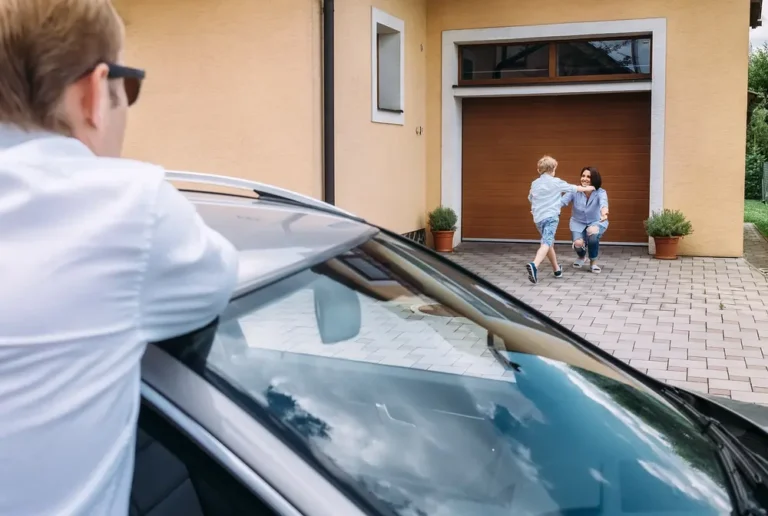What Is A Parenting Coordinator?~ 3 min read
Parenting after a divorce or separation can be an overwhelming task, especially when disagreements arise regarding children’s schedules, activities, or healthcare. You may consider a parenting coordinator, a professional trained in mediation and conflict resolution, who is equipped to help you and your co-parent manage these challenging situations.
What is a Parenting Coordinator?
A parenting coordinator can be either an attorney or a mental health professional. Their primary role is to assist you in resolving disputes and improving communication regarding co-parenting responsibilities. Unlike a traditional court process, a parenting coordinator offers a quicker and often more accessible avenue for resolving conflicts.
What Does a Parenting Coordinator Do?
- Mediation and Conflict Resolution: A parenting coordinator mediates disputes between parents, helping them find mutually agreeable solutions. They guide you and your co-parent through effective communication methods, aiming to reduce conflict and reach resolutions that prioritize the well-being of your children.
- Decision-Making Authority: If you are unable to reach an agreement on certain issues, the parenting coordinator has the authority to make decisions for you. These decisions are enforceable as judgments, providing a swift resolution to contentious matters.
- Resolution of Specific Issues: Parenting coordinators address a range of issues that may not be resolved through the court system. These include decisions about extracurricular activities, educational choices, childcare arrangements, medical care, and financial disputes related to child-rearing expenses.
- Emergency Situations: In urgent situations, such as medical emergencies or disputes over immediate care needs, parenting coordinators can make timely decisions to ensure the well-being of your children.
How Does It Work?
- Voluntary Appointment: Parenting coordinators are appointed by agreement of both parents. A special parenting coordinator appointment order is signed by the parties, the parenting coordinator, and reviewed by the court.
- Limited Term: The duration of the parenting coordinator’s involvement is determined by the co-parents, typically ranging from 1-4 years with the option for renewal. This allows for flexibility while ensuring that the process remains focused on empowering parents to resolve disputes independently.
- Reduced Court Involvement: By engaging a parenting coordinator, you can avoid lengthy court proceedings and associated legal fees. While you can choose to involve your attorneys, the process is streamlined, with the focus squarely on reaching agreements that serve the best interests of the children.
Benefits of Parenting Coordination
- Efficiency: Parenting coordination offers swift resolutions, with decisions often available within a few weeks or months, compared to the prolonged timelines of traditional court proceedings.
- Cost-Effectiveness: By bypassing lengthy court battles, you can save significantly on legal fees and associated expenses.
- Privacy: The parenting coordination process provides additional privacy for your family by allowing you to discuss and resolve your disputes outside of the courtroom and in public.
- Improved Communication: Through mediation and coaching, parenting coordinators help you and you co-parent to develop better communication skills, fostering a more cooperative co-parenting relationship.
- Child-Centered Solutions: Decisions made by parenting coordinators prioritize the well-being and best interests of the children, ensuring that their needs remain at the forefront of the co-parenting process.
In conclusion, parenting coordinators play a vital role in facilitating smoother co-parenting relationships post-divorce or separation. Through mediation, decision-making authority, and guidance, they empower you to navigate conflicts effectively and prioritize your children’s well-being. If you find yourself facing co-parenting challenges, consider exploring the option of parenting coordination for a more efficient and harmonious approach to shared parenting responsibilities.
Contact Family Ally
If you have questions or need legal assistance regarding a parenting coordinator, divorce or any other family law matter, please contact Jennifer Piper at 314-449-9800 to schedule a consultation. Family Ally is located at 130 S. Bemiston Ave., Suite 608, St. Louis, MO 63105.
Jennifer R. Piper is a family law attorney, mediator, and parenting coordinator with more than 20 years of experience serving families in the St. Louis area. She is certified as a Guardian ad Litem and frequently appointed by courts to represent children in high-conflict cases. Jennifer is a former Chair of the Family and Juvenile Law Section of the Bar Association of Metropolitan St. Louis and an active leader in local and state bar organizations.
Her professional recognition includes being named to The Best Lawyers in America® (2017–2025), Missouri Super Lawyers (2021–2024), and receiving a Women’s Justice Award from Missouri Lawyers Weekly. Jennifer also holds an AV Preeminent rating from Martindale-Hubbell. She regularly speaks on family law topics and has helped shape family court procedures through her service on multiple committees.








